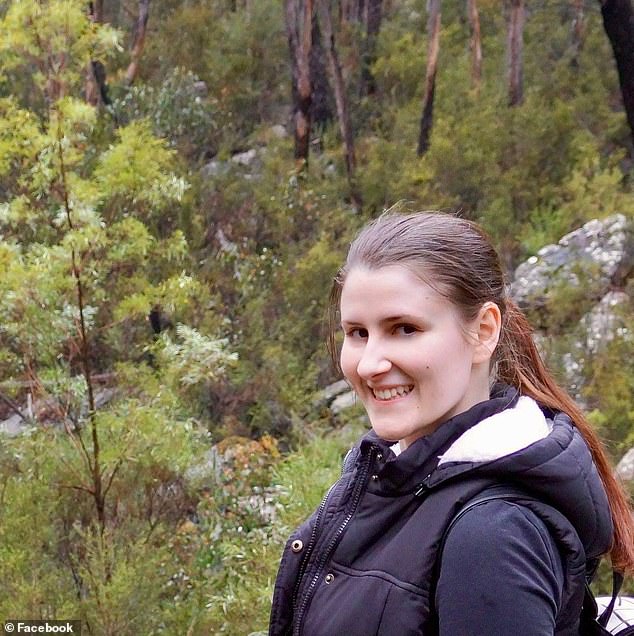She was planning the wedding of a lifetime until ONE mistake cost her $40,000 - Here’s what happened
By
- Replies 23
Your wedding day is one of the most special days in your life, especially for a bride-to-be. It's a day that is filled with joy and anticipation, and most brides spend a significant amount of time and effort in planning every detail, from selecting the perfect dress and venue to curating the guest list.
In many cases, couples spare no expense when it comes to their big day, often spending a considerable amount of money to make sure everything is just right.
While the cost of a wedding can vary, many brides consider it a worthwhile investment in creating a memorable experience that they will cherish for the rest of their lives.
That’s why it’s no secret that many couples are tirelessly brainstorming ways to save money to prepare for their big day.
But for one 30-year-old Melbourne woman, those dreams were dashed when she fell victim to a phone banking scam and lost $40,000 that she’d been saving for her wedding day.
Stephanie Hoggan became engaged to Matty, 30, in May 2022. The couple had been saving up for their dream wedding since November.
However, the couple’s nightmare began when Stephanie received an unsolicited text message during a particularly busy day at work.

'It stated that I’d authorised $900 to be paid to this person, but if it wasn’t me then I should let them know,' the bride-to-be recalled.
'It had a number to call, so, of course, I called it - I didn’t want to lose that money.'
When Stephanie called the number, she spoke to a man with a British accent claiming to be from the National Australia Bank (NAB).
Stephanie said she felt that the man sounded calm and professional - nothing like the typical scammer she had heard about.
He was so convincing that the bride-to-be gave away more than $40,000 of her savings, believing that it was going to a different NAB account the scammer created to safeguard her savings.
But after returning home from work and realising something was off, she called NAB only to be told that her money had already been transferred to an account with the Commonwealth Bank.
It was then that Stephanie realised that a genuine NAB phone call would open with the line 'Welcome to NAB', not 'Welcome to National Australia Bank', as the automated message on her call had done.
NAB confirmed that it is investigating the case. However, it was later revealed that there is nothing they can do to retrieve the funds.
The bank did, however, provide Stephanie with $10,000 compensation.
Although Stephanie appreciated NAB’s compensation, she is still urging banks to step up their game to help protect their customers.
'I was thankful that I still had money left over to pay for my bills and my home,' she said.

The incident came after NAB warned customers to be cautious of messages from individuals claiming to be from their bank, as a new PayID impersonation scam has emerged.
Scammers pretend to be representatives from PayID and target people selling items on the internet, telling them payment for their sold items has been withheld and advising victims to transfer additional payment.
NAB Executive Group Executive and Fraud, Chris Sheehan, states that PayID deception is the latest impersonation scam targeting Australians, and the number of people affected is expected to be higher since many cases are not reported.
Mr Sheehan said: ‘Just as online marketplaces have replaced garage sales as the go-to option to sell second-hand items, the way we make and receive payments is also changing.’
'PayID is a relatively new payment method and is quick, safe and simple. It is also free - and the biggest red flag of any PayID-related scam is often if someone asks you for money to upgrade an account or to access PayID.’
'Cybercriminals are sophisticated and we're unfortunately now seeing them try to exploit PayID given, on the whole, it isn't as familiar to the community as other ways to send and receive money.'
'If you receive one of these, it is a scam.’

Members, it’s heart-breaking that Stephanie lost her hard-saved money to a scam artist. However, her story just goes to show how important it is to stay alert and look out for signs of an online scam.
Remember, always do your own research, ask questions, and never send money to someone you don’t know.
If you feel like you encountered a scammer or have been scammed, we encourage you to alert your bank and the police immediately about the incident.
We also advise reporting it to ScamWatch Australia, so others can be informed about the incident as well.
Stay safe out there, folks!
In many cases, couples spare no expense when it comes to their big day, often spending a considerable amount of money to make sure everything is just right.
While the cost of a wedding can vary, many brides consider it a worthwhile investment in creating a memorable experience that they will cherish for the rest of their lives.
That’s why it’s no secret that many couples are tirelessly brainstorming ways to save money to prepare for their big day.
But for one 30-year-old Melbourne woman, those dreams were dashed when she fell victim to a phone banking scam and lost $40,000 that she’d been saving for her wedding day.
Stephanie Hoggan became engaged to Matty, 30, in May 2022. The couple had been saving up for their dream wedding since November.
However, the couple’s nightmare began when Stephanie received an unsolicited text message during a particularly busy day at work.

A phone banking fraud cost Stephanie Hoggan, 30, $40,000 she had saved for her wedding. Credit: Facebook.
'It stated that I’d authorised $900 to be paid to this person, but if it wasn’t me then I should let them know,' the bride-to-be recalled.
'It had a number to call, so, of course, I called it - I didn’t want to lose that money.'
When Stephanie called the number, she spoke to a man with a British accent claiming to be from the National Australia Bank (NAB).
Stephanie said she felt that the man sounded calm and professional - nothing like the typical scammer she had heard about.
He was so convincing that the bride-to-be gave away more than $40,000 of her savings, believing that it was going to a different NAB account the scammer created to safeguard her savings.
But after returning home from work and realising something was off, she called NAB only to be told that her money had already been transferred to an account with the Commonwealth Bank.
It was then that Stephanie realised that a genuine NAB phone call would open with the line 'Welcome to NAB', not 'Welcome to National Australia Bank', as the automated message on her call had done.
NAB confirmed that it is investigating the case. However, it was later revealed that there is nothing they can do to retrieve the funds.
The bank did, however, provide Stephanie with $10,000 compensation.
Although Stephanie appreciated NAB’s compensation, she is still urging banks to step up their game to help protect their customers.
'I was thankful that I still had money left over to pay for my bills and my home,' she said.

NAB is alerting customers of a new scam. Credit: Pexels/Tara Winstead.
The incident came after NAB warned customers to be cautious of messages from individuals claiming to be from their bank, as a new PayID impersonation scam has emerged.
Scammers pretend to be representatives from PayID and target people selling items on the internet, telling them payment for their sold items has been withheld and advising victims to transfer additional payment.
NAB Executive Group Executive and Fraud, Chris Sheehan, states that PayID deception is the latest impersonation scam targeting Australians, and the number of people affected is expected to be higher since many cases are not reported.
Mr Sheehan said: ‘Just as online marketplaces have replaced garage sales as the go-to option to sell second-hand items, the way we make and receive payments is also changing.’
'PayID is a relatively new payment method and is quick, safe and simple. It is also free - and the biggest red flag of any PayID-related scam is often if someone asks you for money to upgrade an account or to access PayID.’
'Cybercriminals are sophisticated and we're unfortunately now seeing them try to exploit PayID given, on the whole, it isn't as familiar to the community as other ways to send and receive money.'
'If you receive one of these, it is a scam.’
Key Takeaways
- Many couples spare no expense when it comes to their big day, often spending a considerable amount of money to make sure everything is just right.
- However, for one bride-to-be, her dream wedding was dashed when she fell victim to a phone banking scam and lost $40,000.
- Stephanie was duped by a scammer who pretended to be from the National Australia Bank and gave away her savings believing it was going to a different NAB account.
- NAB has warned customers to be cautious of messages from individuals claiming to be from their bank, and to report any possible scam to their bank and the police immediately.
Members, it’s heart-breaking that Stephanie lost her hard-saved money to a scam artist. However, her story just goes to show how important it is to stay alert and look out for signs of an online scam.
Remember, always do your own research, ask questions, and never send money to someone you don’t know.
If you feel like you encountered a scammer or have been scammed, we encourage you to alert your bank and the police immediately about the incident.
We also advise reporting it to ScamWatch Australia, so others can be informed about the incident as well.
Stay safe out there, folks!







